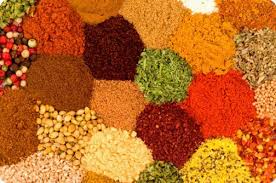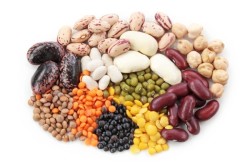Summer is almost here and you want to look and feel your best. You want to lose weight and be full of energy. You want to get into smaller clothes, look sharp, get those admiring looks and feel good within yourself. The quickest, easiest and longest lasting way to do this is by reving up your metabolism.
What is this metabolism and why should we want to “rev it up”? Metabolism is the name given to all the chemical processes that go on continually in your body to keep you alive and your organs functioning normally, such as breathing, repairing cells, and digesting foods. It is affected by age, gender, physical activity, food intake and body composition. Studies have shown that overweight people do not necessarily have slow metabolism but the opposite. This has to do with the amount of energy required to maintain a larger body. Research has also shown that people tend to eat more than they think they do. When it comes to boosting your metabolism nutrition is the first thing you should address and there are many nutrients that can help in this regard; nutrients such as folate, vitamins C, B12 and E, omega 3 fatty acids and zinc to name a few.
Exercise is the best way to build muscles, which in turn drives your metabolic engine and we know that muscle burns twice as many calories as fat. However, as you cannot exercise all day, and your age may prevent you from engaging in some physical exercises you have to answer the question as to how you keep the metabolic fire switched on, even when you are cannot exercise. Here are ways to rev up your metabolism.
Sleep is of paramount importance and when you do not get enough your body increases the production of stress hormones, one of which is cortisol. This results in an increase in your appetite meaning that you eat more and as a result you put on weight. Lack of sleep also makes it difficult for the body to metabolize carbohydrates which can lead to high blood sugar levels which cause an increase in insulin production. This is a signal to the body to store unused energy as fat. People who continue to sleep poorly have a higher chance of diabetes, hypertension, obesity and memory loss.
Intermittent fasting gives your digestive system a rest and helps your body eliminate waste and toxins that accumulate from ordinary eating and drinking. This cleansing of your internal organs helps to increase your metabolism. After you have fasted for eighteen hours your body releases human growth hormone which allows it to burn fat and maintain muscle. This is what makes intermittent fasting so beneficial.
It has been suggested that spices can boost your metabolism by up to 50%. This means that if you cannot get to the gym for a physical work out and you do not engage in brisk walks for half an hour each day you can still improve your metabolism by adding certain herbs and spices to your diet. Some of these will benefit your metabolism and overall good health in different ways. Turmeric, for instance, is a thermogenic herb (tending to produce heat) which not only helps with digestion but also increases the production of bile which helps to break down fats. It also helps in the removal of toxins from the liver. Ginger not only raises body temperature but also helps the cells in muscle tissue use more oxygen and cinnamon and garlic help boost blood circulation. Another herb with superior thermogenic properties is cayenne pepper which is said to increase metabolism by up to 25%. Chillis also have the same effect due to the compound capsaisin, which gives them their “bite”. Hot peppers also reduce your cravings for food. Green tea, a thermogenic herb also has a positive effect on metabolism among its other health giving properties. Three cups a day with added lemon or lime and a dash of cayenne pepper can increase metabolism by about 10 %. Black pepper is said to improve digestion, help with the absorption of nutrients and burn as much calories as a 20 minute walk. Remember, when walking, speed up for about 30 seconds then go back to normal. Do this repeatedly for greatest effect. Other herbs that have a positive effect on metabolism are cinnamon and oregano.
Water makes up more than half of your body weight, about 50% to 60% for women and 60% to 65% for men. Every day you lose water through perspiration and the elimination of waste. If this water is not replenished, dehydration sets in, which compromises your metabolic process and slows down your cellular functions. Women need about 2.7 litres of water a day and men about 3.5 litres. About 20% of this requirement comes from foods you eat and the remainder comes from drinking water and other beverages. Tests have shown that those who drank about two litres of water per day burnt more calories at a higher rate than those who drank less and this while resting. Drinking water also increases thermogenesis, the process of heat generation in humans. Water, itself, does not directly increase metabolism. The increased hydration which comes from drinking water increases the volume of blood, which in turn facilitates the transport of oxygen to the cells and also the transport of waste out of the cells, which increases the efficiency of the cells themselves. Drinking two litres of water will increase your metabolism by 30%.
Women need about 2.7 litres of water a day and men about 3.5 litres. About 20% of this requirement comes from foods you eat and the remainder comes from drinking water and other beverages. Tests have shown that those who drank about two litres of water per day burnt more calories at a higher rate than those who drank less and this while resting. Drinking water also increases thermogenesis, the process of heat generation in humans. Water, itself, does not directly increase metabolism. The increased hydration which comes from drinking water increases the volume of blood, which in turn facilitates the transport of oxygen to the cells and also the transport of waste out of the cells, which increases the efficiency of the cells themselves. Drinking two litres of water will increase your metabolism by 30%.
Eating more frequently may not be practical due to work routines but every time you eat your body experiences the thermic effect of food, which causes increased metabolism. Eating something small every three hours, a concept known as grazing, can keep your metabolism raised but avoid energy drinks, caffeine, trans- fats, sodas and alcohol.
However, when you think of foods that speed up metabolism and assist with permanent weight loss the first that should come to mind is coconut. Coconut consists of medium chain fatty acids which are burnt by the liver immediately and do not get stored as fat. It is very easy to add coconut to your daily regime and enjoy the other numerous health benefits of perhaps the best fruit there is. Grapefruit is also a very effective food item for speeding up metabolism but should not be eaten by anyone who is taking statin drugs or warfarin, the blood thinning drug. Eggs contain all nine essential amino acids, omega 3, B vitamins and chromium and for this reason are important with regard to metabolism. Brown rice and quinoa are complex carbohydrates and like all other carbohydrates they release their energy slowly over a period of time. The result of this is that you feel fuller for longer and do not suffer the spikes that are associated with simple carbohydrates. Because you are feeling fuller for longer you are therefore inclined to eat less which results in weight loss.
Protein has a very high thermic effect and your body will burn more calories to digest it than it would with carbohydrates. Whether the protein comes from animal sources or plants does not matter. If your protein comes from animal sources ensure that the animals have been grass fed and not battery farmed. If, however, it comes from plant sources like beans and legumes make sure you are eating a wide variety to ensure you are getting the full spectrum of amino acids.
